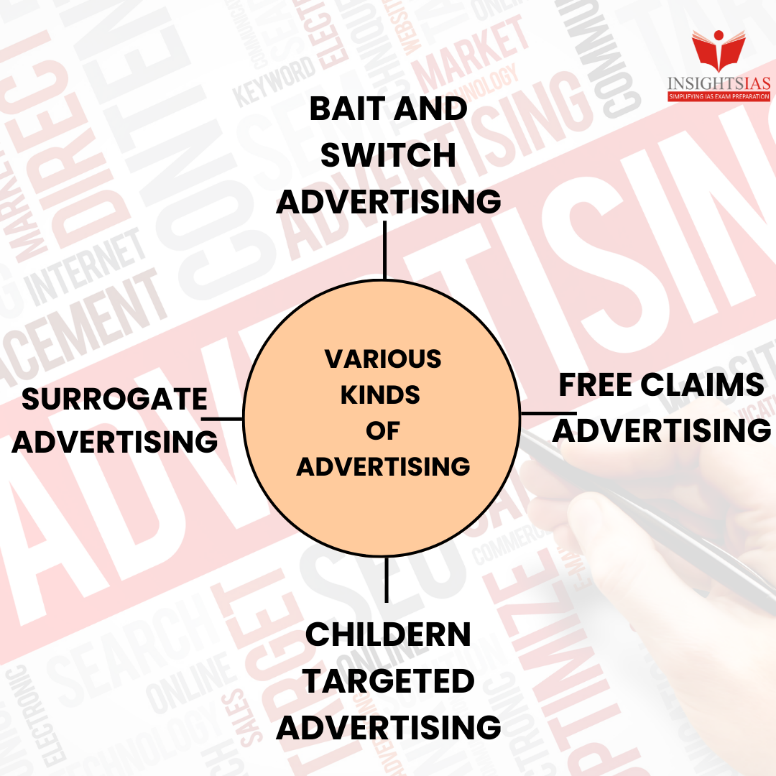[ad_1]
GS Paper 4
Syllabus: Media Ethics
Context:
The Central Consumer Protection Authority has come up with the Guidelines for Prevention of Misleading Advertisements and Endorsements for Misleading Advertisements, 2022.
- Bait advertising: It means enticing consumers to buy the product at a lower price.
- High Tech:-Computers and other high-tech items are easy to bait and switch because many people don’t understand the technology. So, when a salesperson claims that the only difference between this model and the one advertised is that the manufacturers are different, the consumer believes it.
- They are regulated in India.
- Surrogate advertisements: They refer to any advertisement that promotes regulated products, like cigarettes and alcohol, in the disguise of another product.
- The guidelines prohibit the use of surrogate advertising.
- Free advertisements: The advertising method that helps brands get free promotion and boost online presence without any high price tags.
-
- g. Do a free product giveaway or contests; answer quora questions.
- Advertisements targeted at children and youth: The guidelines prohibit the advertisement of such products that will harm kids in any way.
- The guidelines also prohibit advertisements that can develop a negative image of the body in the minds of the children. E.g Fairness cream etc.
- Advertisements also cannot give the impression that a product is better than the traditional food that children usually consume at home. E.g Maggi, Yippee noodles, etc.
- Penalty (derived from the Consumer Protection Act): It prescribes monetary penalties to the tune of Rs 10 lakh for the first offence, which can go up to Rs 50 lakh for subsequent offences, and imprisonment of up to two years under Section 89 of the Act.
[ad_2]



